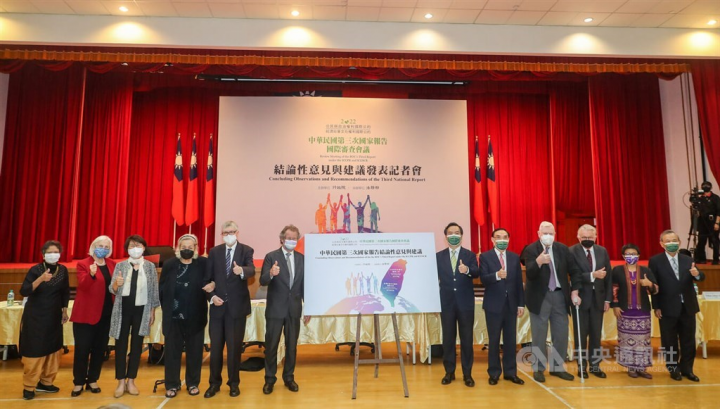
Taipei, May 13 (CNA) An international panel of human rights experts on Friday called on Taiwan to end the "cruel and degrading" practice of capital punishment.
In its Concluding Observations and Recommendations issued Friday, the nine-member group said it was "extremely disappointed" at the failure of Taiwan's government to address the issue despite persistent calls for the abolition of the death penalty in the country.
Invited by Taiwan's government, the group conducted a five-day review from May 9-13 in Taipei of the country's implementation of two United Nations' human rights-related covenants, namely the International Covenant on Civil and Political Rights (ICCPR) and the International Covenant on Economic, Social and Cultural Rights (ICESCR).
While Taiwan has substantially improved its human rights record over the years, some long-standing issues, such as the continued use of the death penalty, remained inadequately addressed, Manfred Nowak, an Austrian human rights lawyer who previously served as the U.N.'s Special Rapporteur on Torture, said at a press conference Friday.
"Taiwan is already among a very, very small number of countries in the world that still retain the death penalty, and the arguments that are time and again, repeated by the government, are far from convincing," Nowak said.
"We are strongly appealing to the Executive Yuan to immediately declare a moratorium on executions," Nowak said, adding that the "cruel, inhuman and degrading" punishment was in violation of ICCPR's Article 6 and 7.
At the same time, all death sentences should be commuted immediately and Taiwan's Minister of Justice should no longer sign execution orders, Nowak said.
Taiwan has the potential to become the Asian standard-bearer in the recognition and enforcement of international human rights, but it will never achieve that so long as the death penalty remains an element of its criminal justice system, Nowak added.
In response to the comments made by the panel, Cabinet spokesperson Lo Ping-cheng (羅秉成) stressed that gradually abolishing capital punishment remained the government's goal.
Lo, however, said at the press event that there was a lack of consensus over the matter in Taiwanese society, hinting that an overhaul of the current policy might not be made anytime soon.
The government has taken note of the suggestions made by the international human rights experts and will convene to discuss the feasibility of declaring a moratorium on executions, Lo said.
Taiwan last carried out a prisoner execution in 2020, and there are 38 prisoners currently on death row.
According to Lo, the 38 prisoners sentenced to death have brought their case to the constitutional court and have therefore received a legally guaranteed stay of execution.
Meanwhile, the panel's report also pointed out the absence of legislation to curb torture and discrimination in Taiwan.
"The information provided by the government clearly shows that there are many allegations of torture against law enforcement officials in Taiwan," the report said, adding that those cases only led to disciplinary action instead of criminal prosecution.
Taiwan has yet to make encode torture -- the crime of inflicting severe mental or physical pain or suffering on a powerless person for a particular purpose as defined in international law -- in its Criminal Code, Nowak said.
He added that Taiwan ought to adopt a "comprehensive anti-discrimination law that addresses the various types of discrimination," something that Nowak said could be applied to both the public and private sectors.
Human rights groups in Taiwan echoed the group's call.
At a press conference held outside the Ministry of Justice building, Huang Yi-bee (黃怡碧), CEO of Covenants Watch, which was formed by a coalition of NGOs in Taiwan, criticized the government for a lack of action and determination to introduce a comprehensive anti-discrimination law.
The government has commissioned scholars to research the issue but has not responded to the NGOs' requests for consultations, according to Huang.
Despite not being a U.N. member, Taiwan ratified ICCPR and ICESCR as a matter of domestic law in 2009.
Since 2013, Taiwan's government has invited human rights experts to Taiwan every four years to review the country's implementation of the two covenants and interact with both government officials and NGO representatives before issuing their observations and recommendations.